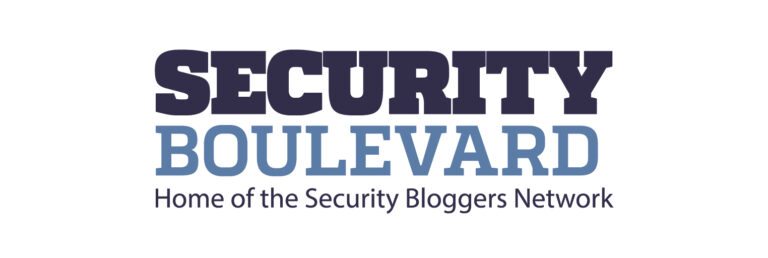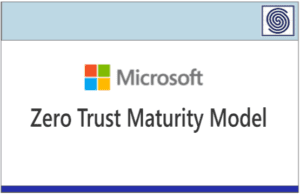Source: securityboulevard.com – Author: ForgeRock Guest Contributor
Businesses have a certain responsibility to disclose how consumer data is being used, and if they don’t, they face hefty fines and hits to their reputation. In fact, many consumers find personal data sharing to be a particular point of contention. So what can organizations do to respect consumer data privacy and avoid negative outcomes? The answer lies in a consent management plan.
What is consent management?
Consent management is a process that allows consumers to decide how much of their information will be accessible to the companies with which they interact. Many people are aware of the importance of digital identity management and want to protect their sensitive information online. Consent management gives them the autonomy to do so.
Companies practicing proper consent management will put a cookie banner on their website. You’ve likely seen this pop up countless times, with a choice of “consenting to” or “rejecting” the use of cookies. Whether you’re banking, shopping, or scrolling on social media, companies are duty-bound to inform you if they are tracking your online behavior.
Through consent management platforms, businesses keep tabs on users accepting or rejecting cookie tracking. They also keep track of marketing communication preferences, such as whether or not people are interested in receiving emails from the company.
Why does consent management matter?
Public concerns about data privacy are nothing new and will continue to expand along with online services. Consent management is there to dispel some of these concerns for consumers. Corporations have a responsibility to adhere to consent management best practices — and there are regulations all over the world that make it a legal requirement as well, such as the General Data Protection Regulation (GDPR), the California Consumer Privacy Act (CCPA), and the Canadian Personal Information Protection and Electronic Documents Act (PIPEDA), to name a few.
Changing public concerns and corporate best practices
Internet users have grown savvy regarding consent management and there is a growing public concern over data privacy. There are proposed adjustments related to consent management from privacy self-regulatory organizations such as the Digital Advertising Alliances (DAAs). In February 2023, the DAAs launched a uniform approach for brands and publishers to offer privacy controls on sites through Consent Management Platforms (CMPs) and the AdChoices program. Collectively called the CMP Complement, the specifications:
- Allow corporations to work with participating CMPs to direct consumers to a dedicated module that provides them with only relevant marketing advertisements
- Allow consumers to use the AdChoices Icon through participating CMPs
- Provide more information, disclosures, and choices to consumers regarding their personal information sharing
- Allow consumers to use the AdChoices Icon to access a CMP dashboard along with the current DAAs’ information and choices regarding personalized ads
Further corporate best practices related to consent management include:
- Identity governance: Allowing only specific users access to specific platforms and information online
- Consent preferences: Giving consumers the option to customize their level of consent to share their personal data
- Subscription options: Giving consumers the option to opt-out fully or partially from marketing communications
- Timeliness of data: Keeping personal data for only an allotted period of time and then deleting it or asking for continued consent
Corporations typically keep consumer information on an identity cloud platform, allowing them to manage consent preferences in accordance with laws and proper business ethics. Giving consumers access to these platforms and control over data privacy is becoming increasingly important — and easier to do with new and improved tools available.
Tracking user consent and preferences
Keeping track of user consent and preferences is integral to success in today’s digital landscape. Users are more keen to have control over their data privacy and access to consent preference platforms.This is a great way to build trust and customer loyalty, but can create additional work. Organizations can utilize CMPs to keep up with this increased demand.
CMPs are important in the present AdTech landscape — an ever-changing and expanding encyclopedia of tools for business advertising. CMPs allow businesses to consolidate all of their consent management information from all of this AdTech into one place, making it easier to track user consent and preferences.
The need for digital identity management
Digital identity management is important for today’s users due to the increasingly sophisticated nature of cyberattacks. All users should be given the option to consent for their private information to be shared with third parties. The level of consent should be as transparent as possible. That way, if there is a data breach, a company has already done everything in its power to let consumers know how their data was being used.
Consumers are concerned with data privacy and will research a company’s safety record before deciding to consent to sharing personal information or receiving marketing communications. For example, if a company just underwent a business split-up, there’s a greater chance that digital assets may be compromised.
Consumers are also tuned in to prior data breaches. They are able to research a company’s previous data privacy failures and incident responses to see if they feel comfortable sharing their sensitive information with them presently. In addition, internet users typically don’t want to be inundated with personalized ads. Targeted advertisements can feel like an invasion of privacy, especially if the user didn’t consent to their data being monitored to inform those ads.
New regulations and best practices
All businesses, regardless of industry, should stay aware of the new regulations, best practices, and advanced tech specifications for digital privacy management. If companies fail to protect their consumers’ digital privacy, it can result in a ruined reputation and significant financial loss, as the average cost of a data breach in the U.S. in 2023 is $9.44 million.
CMPs manage user consent well, but they are best managed in conjunction with other digital privacy tools. Customer identity and access management (CIAM) platforms typically incorporate everything businesses need to keep up with data privacy best practices. They keep everything in one place — from facilitating online registration, login, and account management tools to managing customer identities at scale.
Users want autonomy over their digital assets. To meet this demand for digital autonomy, consent management best practices and modern CIAM tools can be the key for businesses to stay in compliance and in their customers’ good standing.
*** This is a Security Bloggers Network syndicated blog from Forgerock Blog authored by ForgeRock Guest Contributor. Read the original post at: https://www.forgerock.com/blog/shifting-perspectives-and-regulations-relating-consent-management
Original Post URL: https://securityboulevard.com/2023/09/shifting-perspectives-and-regulations-relating-to-consent-management/
Category & Tags: Security Bloggers Network – Security Bloggers Network





















































